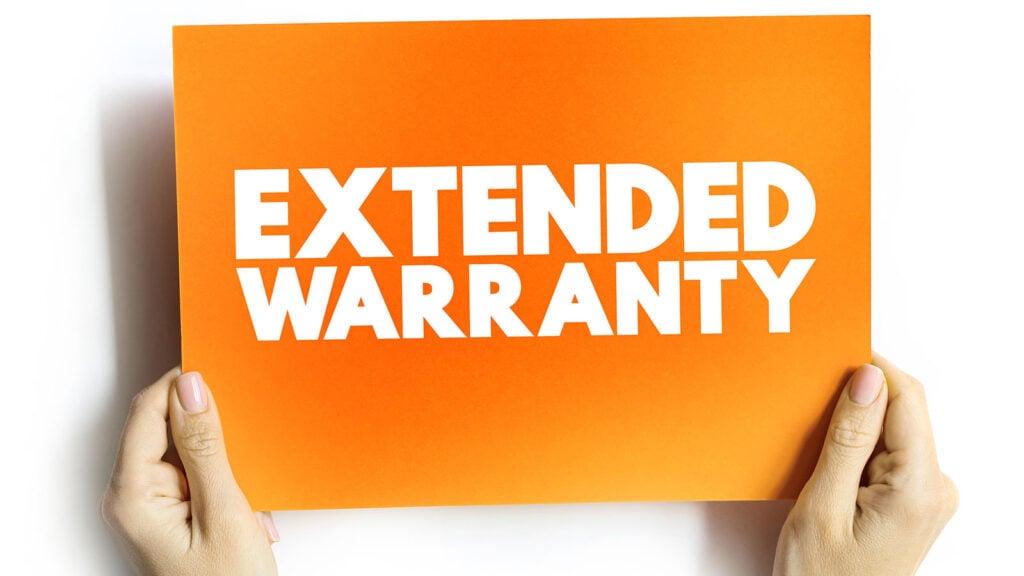Here’s Why You Should Never Buy Extended Warranties

Extended warranties look good on paper, but they may not be worth the paper they're printed on.
The biggest problem with extended warranties is that they are expensive (up to 20% of the purchase price!), and people rarely use them. People either lose their extended warranty documentation, or the warranty doesn't cover their problem because it already expired or doesn't cover whatever broke.
Remember, many products already come with a manufacturer's warranty that covers defects and malfunctions for a considerable period. Purchasing an extended warranty may be redundant when the initial coverage is sufficient.
Consumer Reports conducted a study revealing that products often fail within the manufacturer's built-in warranty period or well after the extended warranty expires. This raises questions about the actual need for extended coverage.
Why Are Extended Warranties Sold?

Sadly, extended warranties are big business. Buy something (especially an electronic gadget) from a big box store, and you'll undoubtedly get hit up to buy a warranty to “protect your investment.”
The extended warranty business is forecast to reach over $284 billion over the next eight years. That's a big industry!
The reason is simple: Stores and manufacturers know it's very unlikely that you'll use your warranty. In essence, it's free money to the store and a nice commission into the pocket of the sales person.
But what happens when something goes wrong with the items you buy? Do we buy it and hope it doesn't break?
No.
There are better ways to protect your investments without forking out extra money for an extended warranty you probably won't use.
What To Do Instead of Buying an Extended Warranty
Instead of succumbing to the pressure of buying extended warranties, consumers can adopt alternative strategies to protect their purchases effectively.
- Research Product Reliability: Before making a purchase, research the reliability and durability of the product. Online reviews, consumer feedback, and expert opinions can provide insights into potential issues and help you make an informed decision.
- Use Credit Card Benefits: Some credit cards offer extended warranty protection as a cardholder benefit. Check the terms and conditions of your credit card to see if it provides additional coverage for your purchases. This can serve as a cost-effective alternative to standalone extended warranties.
- Create Your Own Warranty Fund: Instead of paying for extended warranties, consider setting aside the money you would spend on these warranties in a dedicated account. This self-insurance fund can be used to cover repair or replacement costs if the need arises.
- Explore Homeowners or Renters Insurance: Some homeowners or renters insurance policies cover personal property, including electronics and appliances. Review your insurance policy to understand the extent of coverage and consider adjusting it if necessary.
- Invest in High-Quality Products: Opting for products from reputable brands known for their quality and reliability can reduce the likelihood of malfunctions. While premium products may have a higher upfront cost, the long-term benefits often outweigh the expense.
- Maintain What You Buy: Extend the lifespan of your purchases by adhering to regular maintenance schedules. This is particularly relevant for appliances and electronic devices that benefit from proper care and upkeep.
The decision to stop buying extended warranties is rooted in a proactive approach to consumer protection and not letting stores and manufacturers con you into buying something that you probably don't need.
By conducting thorough research, leveraging credit card benefits, creating a self-insurance fund, exploring existing insurance policies, investing in high-quality products, and practicing regular maintenance, consumers can ensure the longevity and functionality of their purchases without relying on costly extended warranties.
Ultimately, it's about making informed decisions that align with your specific needs and preferences, allowing you to enjoy your products without the burden of unnecessary expenses.